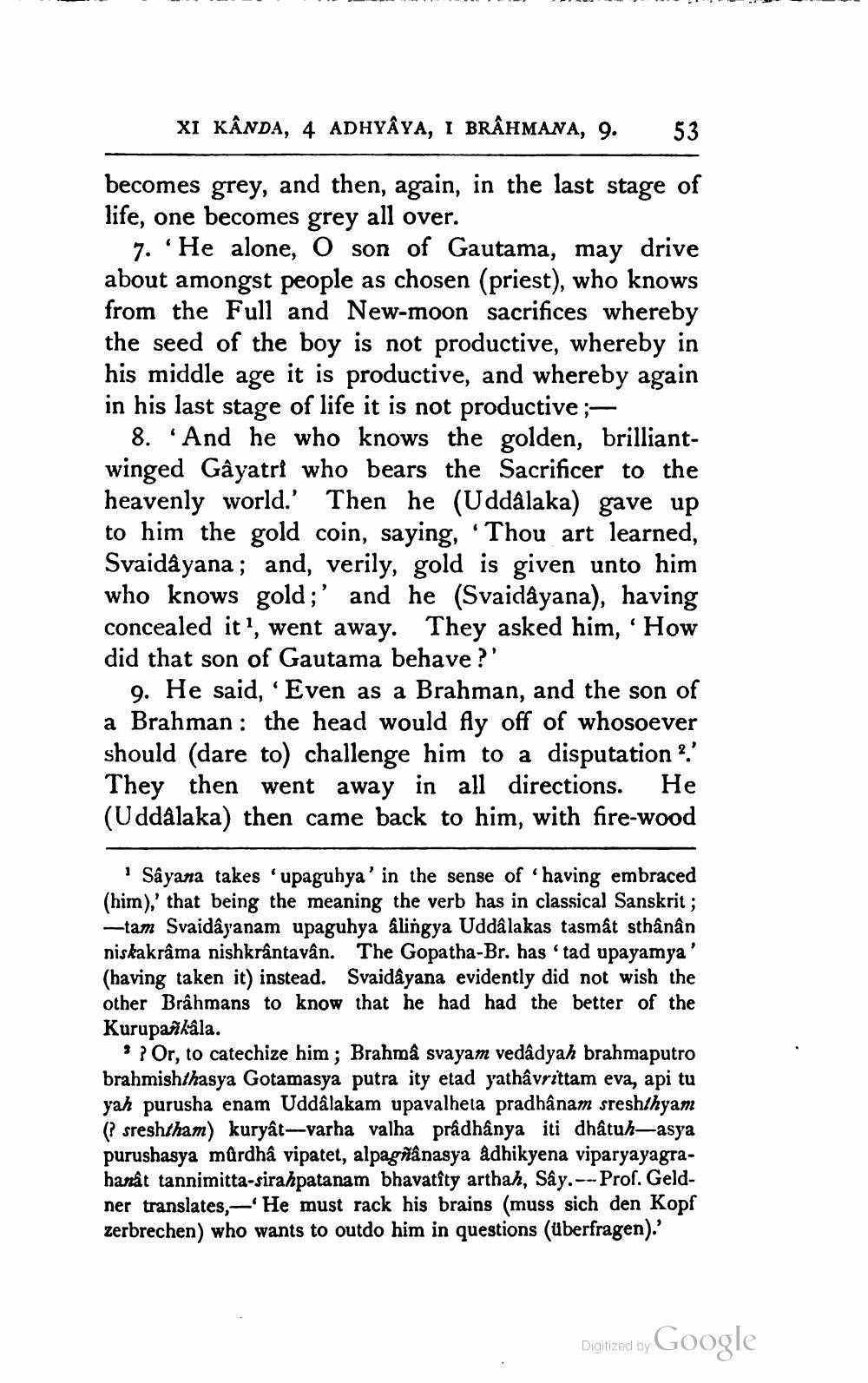________________
XI KÂNDA, 4 ADHYÂYA, I BRÂHMANA, 9. 53
becomes grey, and then, again, in the last stage of life, one becomes grey all over.
7. He alone, O son of Gautama, may drive about amongst people as chosen (priest), who knows from the Full and New-moon sacrifices whereby the seed of the boy is not productive, whereby in his middle age it is productive, and whereby again in his last stage of life it is not productive ;—
8. And he who knows the golden, brilliantwinged Gâyatri who bears the Sacrificer to the heavenly world.' Then he (Uddâlaka) gave up to him the gold coin, saying, 'Thou art learned, Svaidâyana; and, verily, gold is given unto him who knows gold;' and he (Svaidâyana), having concealed it', went away. They asked him, How did that son of Gautama behave?'
"
9. He said, 'Even as a Brahman, and the son of a Brahman: the head would fly off of whosoever should (dare to) challenge him to a disputation 2.' They then went away in all directions. He (Uddâlaka) then came back to him, with fire-wood
1 Sâyana takes 'upaguhya' in the sense of 'having embraced (him),' that being the meaning the verb has in classical Sanskrit ; -tam Svaidâyanam upaguhya âlingya Uddâlakas tasmât sthânân niskakrâma nishkrântavân. The Gopatha-Br. has 'tad upayamya (having taken it) instead. Svaidâyana evidently did not wish the other Brahmans to know that he had had the better of the Kurupaйkâla.
* ? Or, to catechize him; Brahmâ svayam vedâdyah brahmaputro brahmishthasya Gotamasya putra ity etad yathâvrittam eva, api tu yah purusha enam Uddâlakam upavalheta pradhânam sreshthyam (?sreshtham) kuryât-varha valha prâdhânya iti dhâtuh-asya purushasya mûrdhâ vipatet, alpagñânasya âdhikyena viparyayagrahanât tannimitta-sirahpatanam bhavatîty arthah, Sây. -- Prof. Geldner translates,' He must rack his brains (muss sich den Kopf zerbrechen) who wants to outdo him in questions (überfragen).'
Digitized by
"
Google




